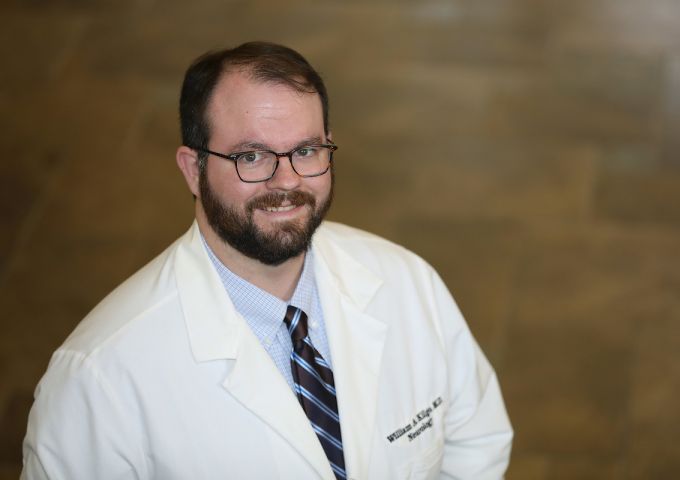
Pharmacy residency programs offer specialized training
Allen Broome, Pharm.D., director of health system pharmacy at USA Health, said that residency training benefits the profession long term and expands the ability to care for current and future patients.
By Carol McPhail
[email protected]
Pharmacy residents Leah Croft, Pharm.D., and Macy Wigginton, Pharm.D., are spending the inaugural year of a PGY-1 residency at USA Health working along multidisciplinary teams at University Hospital as they complete five-week rotations through various departments.
For Croft, participating in the program allows her to get the clinical experience she needs to pursue a career in a specialized setting.
“I applied to USA for residency due to the great experiences I had here during my clinical year in pharmacy school and during vaccine clinics,” said Croft, a graduate of the Auburn University Harrison School of Pharmacy and one of two first-year residents in the new pharmacy residency program at USA Health. “My plan is to pursue a PGY-2 in critical care and to ultimately find work at a trauma center as a surgical trauma intensive care unit pharmacist.”
Wigginton, a graduate of the Samford University McWhorter School of Pharmacy, recently completed her rotation in in-patient emergency medicine. During the rotation, most days included interviewing the patient and caregiver, and contacting pharmacies or nursing homes to get the most accurate home medication information. She also attended stroke and trauma cases to help with medications.
Wigginton said she wants to further what she learned in pharmacy school and during her fourth-year rotations. “I enjoy being in the hospital setting and working with all members of the healthcare team,” she said. “I have learned that communication is key. Knowing how to effectively communicate with providers, nurses or students is a skill that pharmacists use daily.”
The establishment of pharmacy residency programs at USA Health is a natural fit for south Alabama’s only academic health system. “The purpose of the residency is to shape that clinical aspect of pharmacy and become more specialized,” said ShaRhonda Watkins, Pharm.D., M.B.A, director of the PGY-1 program. “It helps you to practice at the top of your pharmacy license.”
Allen Broome, Pharm.D., director of health system pharmacy at USA Health, said that residency training benefits the profession long term and expands the ability to care for current and future patients. “The addition of these residents is just the beginning as we look to increase our presence in the health system and make meaningful changes in culture and workflow.”
Sean Smithgall, Pharm.D., directs USA Health’s PGY-2 pharmacy residency program, which focuses on outpatient care. “The goal of the second-year program is to take a resident who has already completed a PGY-1 and specialize their training in ambulatory care so they can graduate and be successful in any primary care setting,” he said. “It’s said that each year of residency is like three to five years of clinical experience.”
Devan Rockwell, Pharm.D., the sole PGY-2 resident, said she decided during pharmacy school at Auburn that she would pursue a residency. She completed her first postgraduate year at West Florida Hospital in Pensacola and then applied to USA Health for the second year. “During my fourth-year rotations, I developed a passion for ambulatory care pharmacy,” she said. “I applied to the PGY-2 at USA Health because it is associated with a clinic that integrates care with different health professions.”
For more information about pharmacy residency programs at USA Health, visit the Pharmacy Residency Program webpage.




